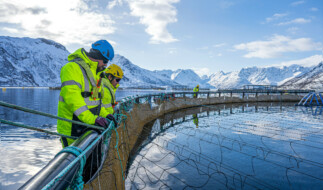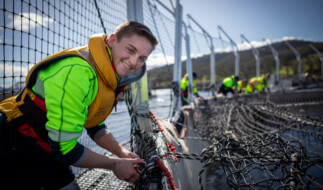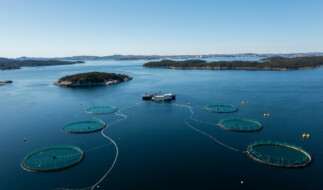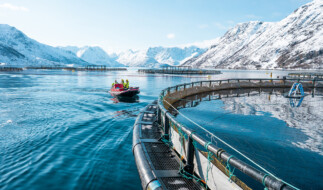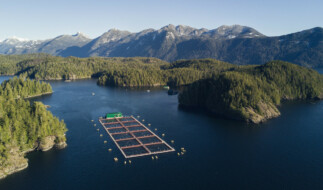Raised To Be Better: Shaping the next decade of sustainable salmon farming
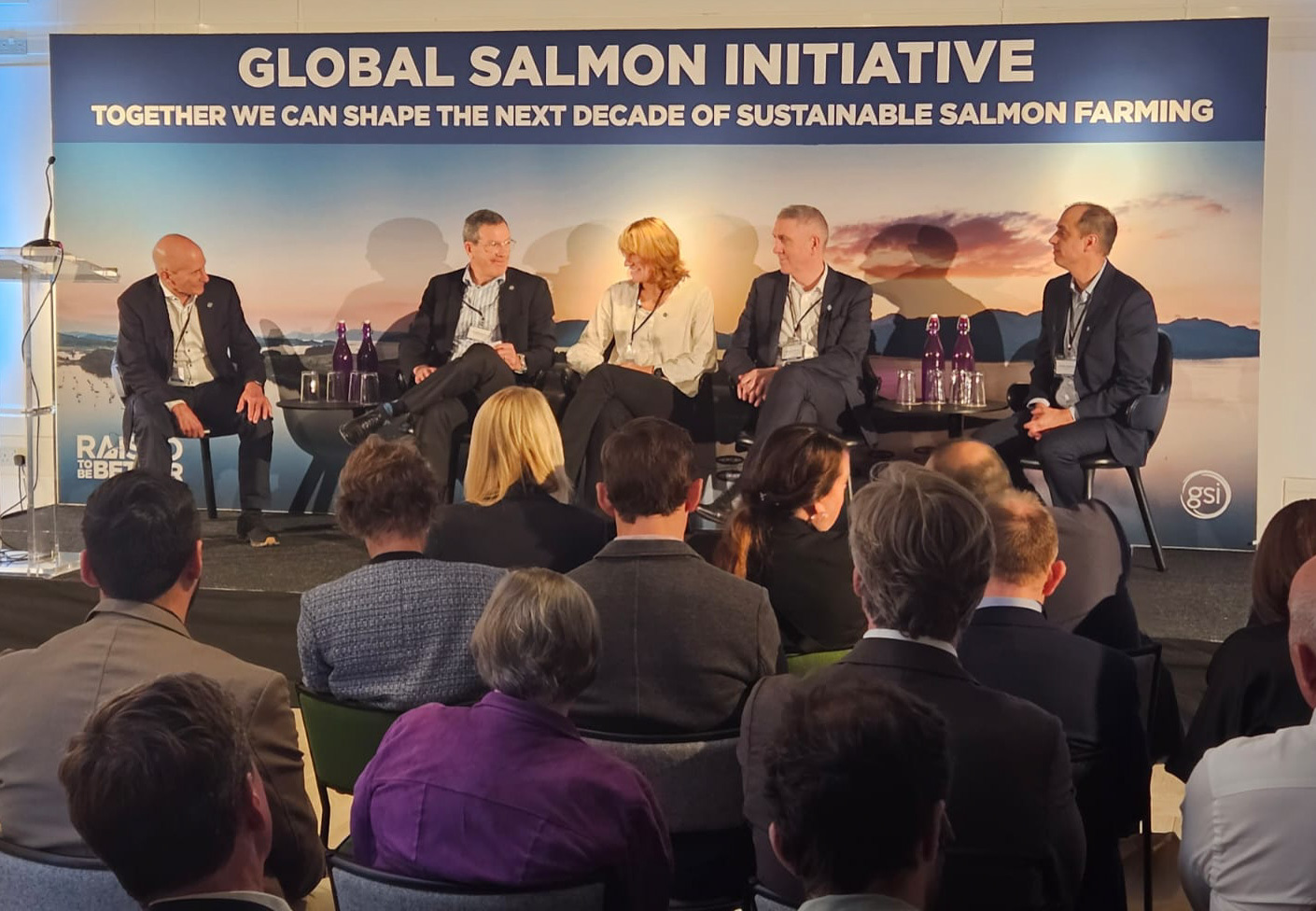
Ten years ago, a number of CEOs gathered in Norway to discuss the sustainability performance of the global salmon farming sector and to see what options they had to drive progress. In that meeting, the foundations of Global Salmon Initiative (GSI) were born.
Since then, the group has evolved, members have joined, working groups have been established and priorities have continued to evolve, but the core mission has stayed the same: catalyze improvements in the sustainability of the farmed salmon sector at speed and scale.
This month, we are very proud to mark our 10th Anniversary. Ten years of collective efforts to drive positive change in key areas including certification, sourcing of feed, fish health and welfare and more recently carbon footprint. This significant achievement has been possible by uniting farmers from around the world who are usually competitors to work together on environmental improvements.
To celebrate, we brought together GSI CEOs and members, sustainability experts, environmental and food system leaders and aquaculture stakeholders in London. We used learnings from the past decade of GSI to discuss how together we can shape the next decade of sustainable salmon farming considering global climate challenges, environmental, social, and governance (ESG), and food system risks.
“Personally, this is a proud moment for me. Having worked with GSI since 2013, it has been an evolution, both on a personal level and as a collective. Witnessing first-hand the ambitions outlined by the CEOs, to the technical knowledge exchange in the working groups, GSI is driven by the commitment of those involved.”Sophie Ryan, CEO, Global Salmon Initiative
Our CEO, Sophie Ryan and co-chairs Sady Delgado and Aino Olaisen opened the day by sharing their personal perspectives on the importance of this milestone in marking the continued commitment of the GSI CEOs in improving the sector’s environmental performance. They noted that collective work at this level is not always easy, and it takes perseverance from all GSI members. Sady and Aino reminded the audience that despite progress to date, there is still a lot more to be done within GSI, within the sector and beyond.
A Changing World
The event featured an array of high-level speakers to help us set the scene in which we operate. Gonzalo Muñoz opened the dialogue for us. Gonzalo was one of the two UN High Level Climate Action Champions for COP 2019 -2021. He is currently the chair of the advisory board for the Climate Champions Team, and most recently was appointed the Food and Water Strategy Lead for COP28. Gonzalo spoke to the importance of aquaculture in helping to meet global food system and climate needs, as well as the critical role private sector can play in accelerating progress. He emphasized that by working together, fuelled by improved data, there is the opportunity to expand beyond being sustainable farmers to ultimately support a more resilient industry.
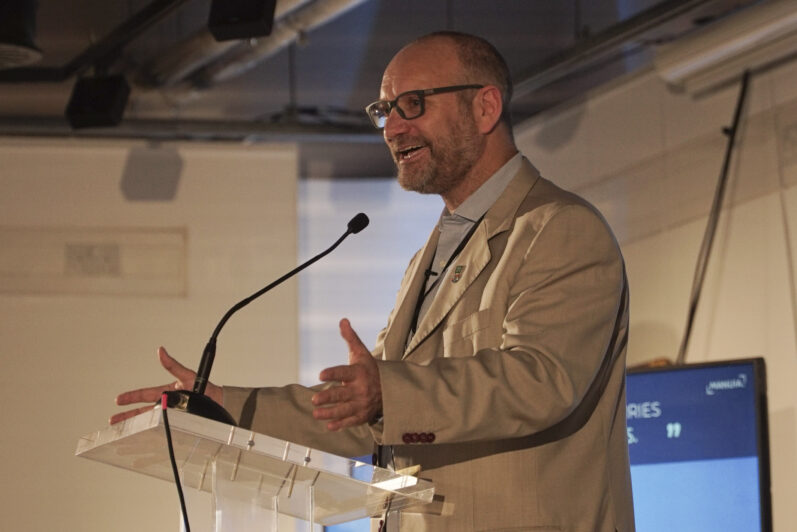
Gonzalo Muñoz, Chair of the Food and Water Strategy at COP28, discusses the role of aquaculture in meeting food system and climate needs.
“Aquatic food and aquaculture are absolutely fundamental for SDG 14. And as we pull together initiatives ahead of COP28 there is a strong pillar for blue aquatic food, including aquaculture. Change is needed yes, and I have faith we have the ‘Tesla’ of aquaculture here to spark the innovations needed for a sustainable future.”Gonzalo Muñoz, Chair of the Food and Water Strategy, COP28
To achieve the progress we know the sector needs, we need to rely on science and key stakeholders to help guide us. We were excited to welcome the following speakers, who shared their expertise on a variety of aquaculture and food system topics and highlighted how their work can support the future of the salmon farming sector.
- Amy Novogratz: Co-founder and managing partner of Aqua-Spark, a Netherlands-based global fund dedicated to investing in sustainable aquaculture businesses. Amy spoke about the exciting prospects innovation holds in the aquaculture sector and its opportunity to help shape a healthy, sustainable and climate resilient food system.
- Josefina Achaval-Torre: Global Coordinator of the Good Food Finance Network, where she is bridging the worlds of food and finance to accelerate the transition towards a healthy and resilient food future. The network, founded by the UN Environment Programme (UNEP), the World Business Council for Sustainable Development (WBCSD), EAT, FAIRR and Food Systems for the Future, provides finance solutions for sustainable food systems. Josefina provided an update on the Network and the role of private sector in unlocking solutions for the future.
- Emily Moberg: Director at World Wildlife Fund’s Markets Institute, focusing on Scope 3 Carbon Measurement and Mitigation. Emily shared updates on the partnership with GSI to align greenhouse gas (GHG) emission accounting across companies to help accelerate mitigation efforts through knowledge transfer.
- Dr. Lynne Falconer: UK Research and Innovation (UKRI) Future Leaders Fellow at the University of Stirling. Lynne shared details of her current project investigating the ability of marine aquaculture to respond to climate change using systems thinking and precision-based frameworks. She is actively working with the salmon sector to collect more data and promote knowledge sharing.
- Dr. Doris Soto: Principal scientist at the Interdisciplinary Centre for Aquaculture Research (INCAR) in Chile. Given the future risks facing all ocean economies, Doris highlighted the need for ecosystem approach in aquaculture and how initiatives to address climate change and aquaculture interactions can be best developed through collaboration with private sector and academia.
- Neil Hornby: Chief Executive of the Centre for Environment, Fisheries and Aquaculture Science (CEFAS), the UK’s most diverse center for applied marine and freshwater research. Neil highlighted the important role of science in developing sustainable aquaculture and the ability for sectors to transfer knowledge and learn from one another.
“Collaboration is essential for sustainable climate action. By working with GSI I get to see the realities about salmon farms rather than just my computer trying to work it out for myself, and we can learn from each other to adapt much quicker.”Dr. Lynne Falconer, UKRI Future Leaders Fellow at the University of Stirling
We thank our speakers for joining us and contributing to such insightful discussions. As the world around us continues to change at an accelerated rate, we recognize the continued need for data, science, transparency and collaboration to help build a more resilient industry for the future.
A Decade of Momentum
Of course, we couldn’t mark the GSI 10th anniversary without hearing from our CEOs themselves, so next we heard from some of the GSI CEOs on what it means to be a GSI member, followed by questions from the audience.
Joining us in the panel was:
- Ricardo Garcia, President and CEO of Salmones Camanchaca and chairman of the Chilean Salmon Marketing Council
- Aino Olaisen, GSI co-chair, and chair of the Board of Directors at Nova Sea AS
- Steven Rafferty, CEO of Cermaq
- Cristián Swett, CEO of Multiexport Foods
“We are not done, however. There is still a lot more to be done to ensure the future sustainability and resiliency of the sector. And while today is about looking back on the successes we have seen in GSI over the last decade, more importantly, it is about looking to the future.”Aino Olaisen, GSI co-chair, and chair of the Board of Directors at Nova Sea AS
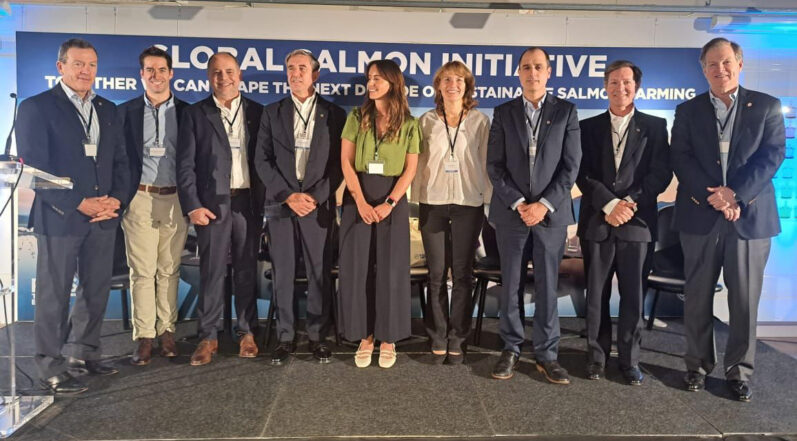
GSI members celebrated 10 years of collaboration and sustainability knowledge sharing.
“We cannot protect the future if we can't recognize where we are coming from. We have to be transparent so we can improve.”Sady Delgado, GSI co-chair, and CEO of AquaChile
Evolved Pillars for Action
Alongside the 10th Anniversary event, GSI released its evolved pillars for action. Since day one of GSI, the goal has been to achieve the highest levels of environmental and social sustainability, fish health and welfare and improve feed sourcing and transparency through reporting.
Over the last 10 years, GSI has shown measurable impact in improving the sustainability performance of the global salmon farming sector and supply chain, and shared transparency progress in our journey as part of our annual Sustainability Report.
But as we look to the future, we have categorized our focus areas within 3 pillars:
- Climate action – A changing climate poses significant risk to the food sector, including aquaculture. For this reason, we are committed to doing our part in reducing GHG emissions through ambitious mitigation strategies as well as improving our understanding of the risks posed by a changing climate, assessing adaptation approaches, and above all working together to improve the sector’s resiliency for the future.
- Respect for nature – As fish farmers, fish health and welfare is a priority for us, which is why we are committed to continually looking for ways to improve optimal welfare conditions. We also recognize the importance of all species and ensuring future biodiversity in our oceans and on land. We are committed to reducing our footprint on land and in the sea, and supporting biodiversity protection, regeneration and nature-positive actions across our supply chains.
- Contributions to sustainable food systems – GSI members are committed to supporting the development of healthy communities through the provision of nutritious food, as well as providing a positive contribution to the communities in the areas where we operate. This commitment goes beyond our regional borders and extends to supporting wider aquaculture development in high-need areas to meet global needs for nutritious, climate-resilient food.
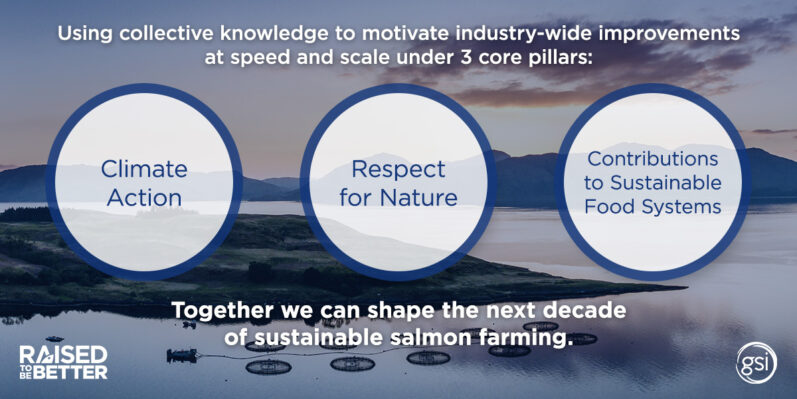
The event was attended by almost 100 stakeholders, and we are very grateful for their support and guidance in our ongoing journey towards a more sustainable future. As GSI we will always focus our efforts on areas where we can drive measurable improvements in the sustainability of the sector.
Together, we are committed to shaping a more resilient future, and farming salmon that are raised to be better for people and planet. Learn more about GSI’s goals and vision for a more sustainable future.
